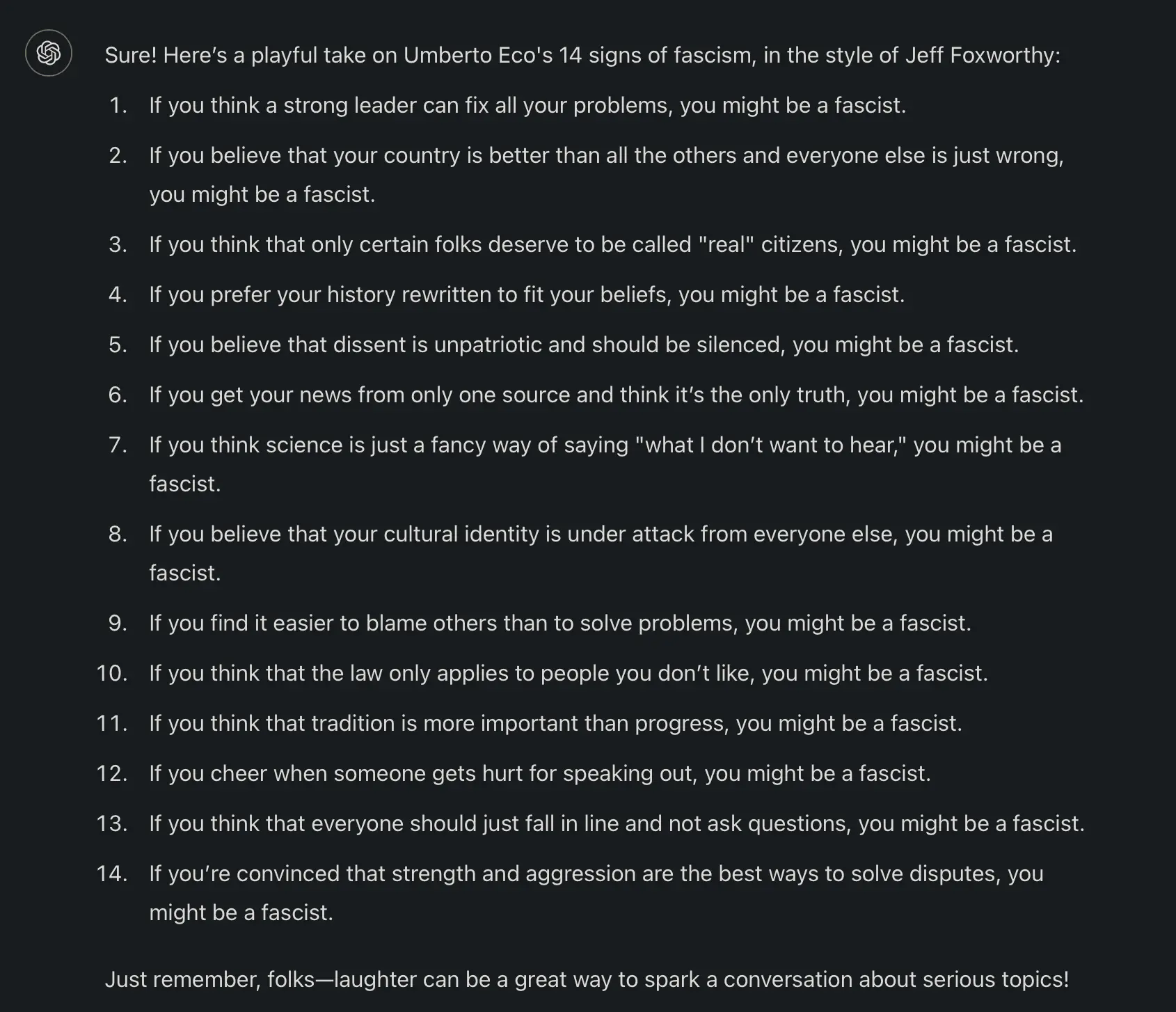ChatGPT rewrites Umberto Eco's 14 signs of fascism as Jeff Foxworthy.
ChatGPT rewrites Umberto Eco's 14 signs of fascism as Jeff Foxworthy.


not a perfect translation, but pretty good.
ChatGPT rewrites Umberto Eco's 14 signs of fascism as Jeff Foxworthy.


not a perfect translation, but pretty good.
https://www.openculture.com/2016/11/umberto-eco-makes-a-list-of-the-14-common-features-of-fascism.html These don't line up very well. 2/14 is a failing grade.
yeah they don't line up exactly, but I think each one is still applicable to other points.
I think it expresses the point in a straight forward and easy to explain manner. While providing examples to reflect on. I'm not saying it's going to fix the world but maybe give a handful of people something to reflect on.
I could only read this in Jeff Foxworthy’s voice, which made it…. weird.
Is Foxworthy still a Trumper?
no idea, the redneck joke phrasing just came to mind as I was reading.
He was one of the best writers ever too 😥
I would disagree with 1 and 3, but I could just be over thinking.
A strong leader can solve all the problems- by developing teamwork, collaboration and understanding, and inspiring others to address these issues.
"Real" citizens are those with citizenship. Doesn't mean residents or illegal residents aren't people or important, just not citizens.
Unfortunately for both we know what fascists actually do.
With #1, strong leader probably means the strong-handed over-enforcing leader who's tough on crime to solve problems. In your example I agree, but I'd also argue the leader is guiding society in that case and it takes everyone to solve problems.
With #3, I think it's referring to a subset of actual citizens who are treated like "real" citizens over other citizens. Whether it's by race, class, religion, etc. Some minority of the population is made the boogeyman.
Yeah, strong leader usually refers to dictators, not "good" leaders.
In the scale of nations I would disagree. A single strong leader can"t solve all the problems. No matter how "good", progressive, collaborative etc. He is.
As soon as one holds all the power people around them will start to please them for their own benefit instead of telling the truth so it becomes impossible for the leader to make I formed decisions in the spirit of ALL the people In a whole nation
If you're surrounding yourself with ass kisser you're a bad leader anyway. Its the thing people forget about leadership - its not your job to do it. Its your job to provide the vision, inspire it, and facilitate smarter and skilled people to achieve it.
In the case of nations - let's take my New Zealand. Jacinta Adern was an average politician but a great crisis leader. She couldn't stop covid from happening, but she made choices that kept us safe, kept our economy and skills intact, and kept us calm. She didn't do it herself- she gave us the vision, had the right people in the right place, and brought the policies and plan forward. I wouldn't vote for her again as a "peacetime" leader, but strongly wish we could keep her on retainer for the next crisis.
Pretty factual.